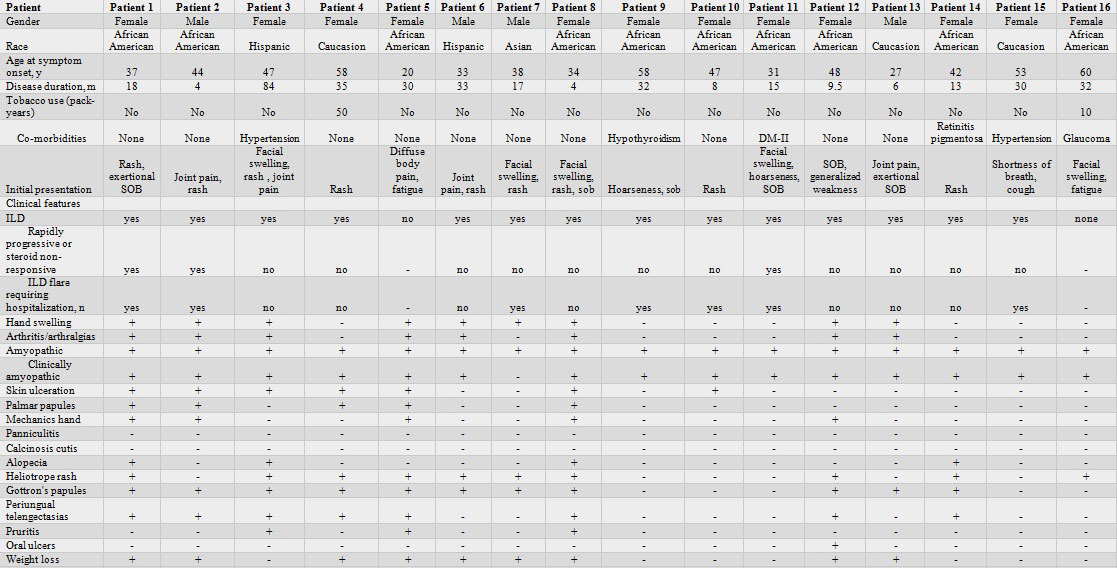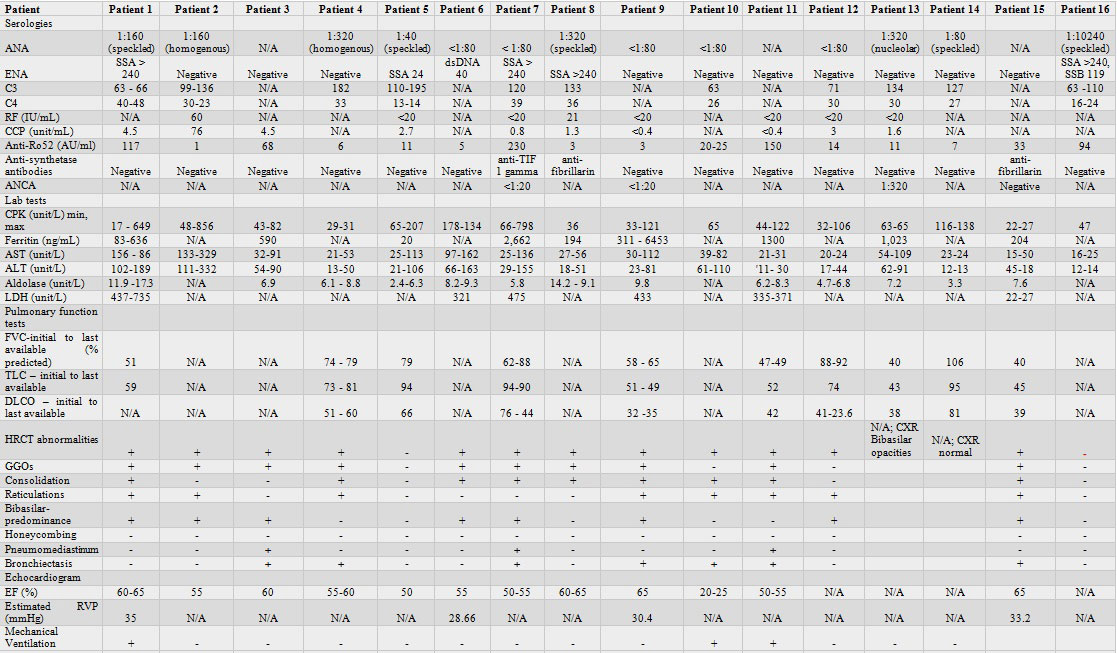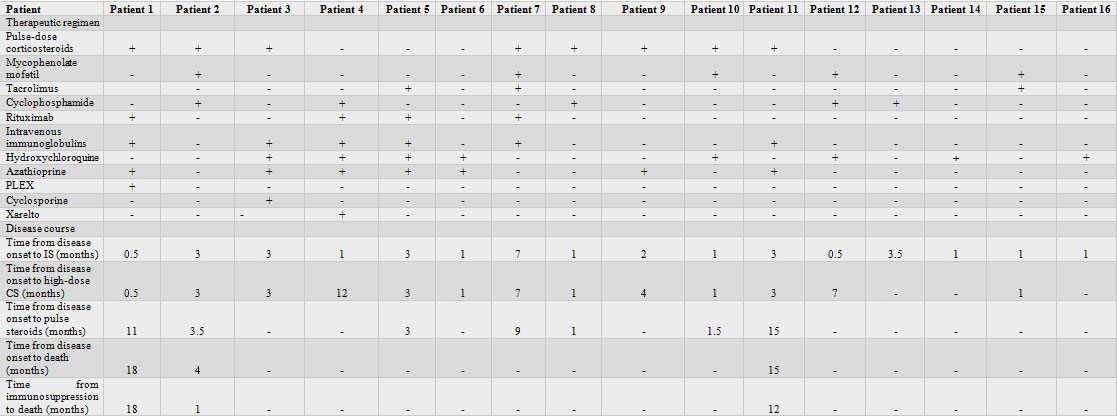Session Information
Date: Tuesday, November 12, 2019
Title: Miscellanous Rheumatic & Inflammatory Disease Poster III: Autoimmune Conditions and Therapies
Session Type: Poster Session (Tuesday)
Session Time: 9:00AM-11:00AM
Background/Purpose: Individuals with autoantibodies against melanoma differentiation-associated protein 5 (MDA-5) are reported to have a significant risk of developing rapidly progressive and fatal interstitial lung disease (ILD). It is important that as new DM‐specific antibodies emerge, the associated phenotype be carefully defined as this can greatly impact the choice of treatment and prognostication of patients. The goal of this study is to describe the clinical and radiologic features of anti-MDA‐5 antibody-positive patients in a North American cohort, and in doing so, we contrast the existing literature by highlighting that ILD was less severe than previously reported and most patients had more favorable outcomes with treatment.
Methods: This retrospective study characterized the clinical characteristics, lung function, HRCT findings, treatment and outcomes of MDA5-positive patients seen at at Emory University and affiliated hospitals.
Results: Fourteen MDA5-positive and two borderline-positive cases were identified between 2013 to 2019. Median disease duration is 18 months (range: 4-84). 15/16 (92%) had clinically amyopathic dermatomyositis, 7/16 (40%) had cutaneous ulcers and 14/16 (87%) had ILD. 6/16 subjects (37%) developed severe ILD of which 3 died from hypoxemic respiratory failure. Of the three patients that died from hypoxemic respiratory failure, one had severe pneumomediastinum.
Conclusion: Our data supports that MDA5 Ab-associated ILD can be severe and/or progressive in a significant number of patients, however, it is can be treatable and stabilized in most cases. Borderline positive anti-MDA5 patients manifest a phenotype consistent with strong positive MDA5 patients. Finally, an association with spontaneous mediastinum may contribute to mortality rates in more severe cases.
To cite this abstract in AMA style:
Soni D, Maniscalco D, Veeraraghavan S, Cheeley J, Khosroshahi A. Anti–MDA5 Antibody Positive Dermatomyositis Is Not Always Associated with Recalcitrant Lung Disease or Mortality [abstract]. Arthritis Rheumatol. 2019; 71 (suppl 10). https://acrabstracts.org/abstract/anti-mda5-antibody-positive-dermatomyositis-is-not-always-associated-with-recalcitrant-lung-disease-or-mortality/. Accessed .« Back to 2019 ACR/ARP Annual Meeting
ACR Meeting Abstracts - https://acrabstracts.org/abstract/anti-mda5-antibody-positive-dermatomyositis-is-not-always-associated-with-recalcitrant-lung-disease-or-mortality/



